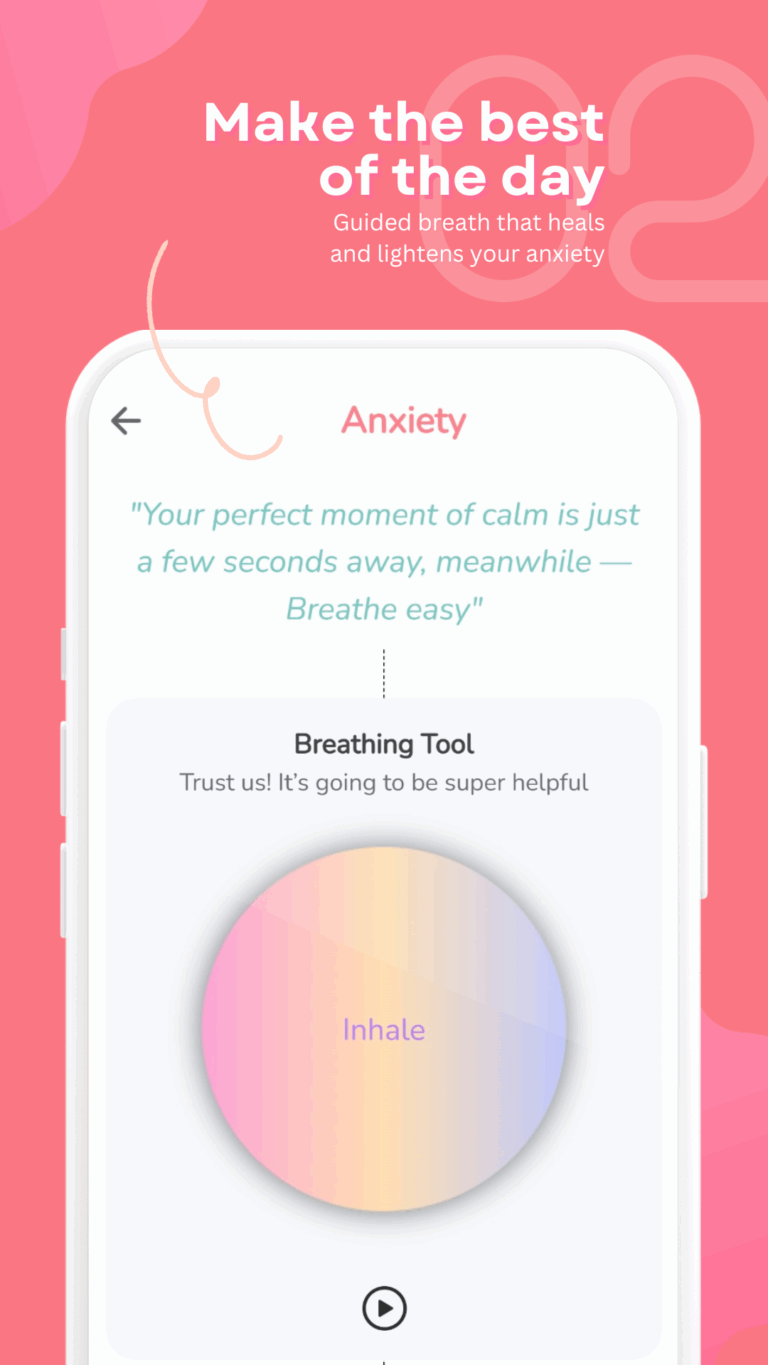Feeling better starts here,
One app. Daily calm. Real support.
Tired of daily stress, sleep issues, or racing thoughts?
TheLifeMerit helps you stay calm, clear, and in control; using music, mindfulness, and mood tools Feel less anxious, sleep better, stay calm; all in your rhythm, your way
- Because what exists either feels robotic, expensive, or not made for you.
- Built for Indians, in dual language, Hindi and English.
- TheLifeMerit offers support that’s gentle, local, and real, right in your pocket.
- Trusted by parents, professionals, and recommended by experts
100% behavioral science, private and secure
⭐ “This app helped my daughter feel less anxious before her 12th boards”
Feeling better starts here,
One app. Daily calm. Real support.
Tired of daily stress, sleep issues, or racing thoughts?
TheLifeMerit helps you stay calm, clear, and in control; using music, mindfulness, and mood tools Feel less anxious, sleep better, stay calm; all in your rhythm, your way
- Because what exists either feels robotic, expensive, or not made for you.
- Built for Indians, in dual language, Hindi and English.
- TheLifeMerit offers support that’s gentle, local, and real, right in your pocket.
- Trusted by parents, professionals, and recommended by experts
100% behavioral science, private and secure
Feel heard. Start small. Grow strong.
Real Struggles, Often Ignored








Discover More. Worry Less. Right Here.
Understand, Reflect, Grow

Clarifying Your Path to Mental Well-being
Explore answers to real concerns around privacy, access, and support We understand trust matters, here’s what you need to know
What is TheLifeMerit?
TheLifeMerit is a mental wellness app designed to help you navigate stress, anxiety, low mood, and sleep issues through curated audio sessions, mindfulness tools, and calming content.
Is TheLifeMerit free to use?
Yes, TheLifeMerit offers a wide range of features completely free. Some premium features may be introduced in the future, but the core experience remains accessible to all.
How can TheLifeMerit help me?
The app provides breathing exercises, guided meditations, motivational audio tracks, nature sounds, emotional learning, and personalized recommendations to support your daily mental well-being.
Who is TheLifeMerit for?
The app is suitable for anyone experiencing stress, anxiety, difficulty sleeping, or seeking mental clarity—whether you’re a student, professional, parent, or simply someone who wants to feel more balanced.
Is my data safe with TheLifeMerit?
Absolutely. We prioritize your privacy and do not collect any personally identifiable information unless explicitly provided. All data is handled in accordance with standard privacy practices.
How do I get started?
Download the app from the Google Play Store, install it, and follow the guided onboarding. No account is needed to begin using core features.
Can I use TheLifeMerit without signing in?
Yes. Most features are accessible without any login or sign-up, making it easy to start whenever you need support.
How often is new content added?
We regularly add new audio sessions, prompts, and tools based on user feedback and evolving wellness needs. Keep the app updated for the latest content.

Clarifying Your Path to Mental Well-being
Explore answers to real concerns around privacy, access, and support We understand trust matters, here’s what you need to know
What is TheLifeMerit?
TheLifeMerit is a mental wellness app designed to help you navigate stress, anxiety, low mood, and sleep issues through curated audio sessions, mindfulness tools, and calming content.
Is TheLifeMerit free to use?
Yes, TheLifeMerit offers a wide range of features completely free. Some premium features may be introduced in the future, but the core experience remains accessible to all.
How can TheLifeMerit help me?
The app provides breathing exercises, guided meditations, motivational audio tracks, nature sounds, emotional learning, and personalized recommendations to support your daily mental well-being.
Who is TheLifeMerit for?
The app is suitable for anyone experiencing stress, anxiety, difficulty sleeping, or seeking mental clarity—whether you’re a student, professional, parent, or simply someone who wants to feel more balanced.
Is my data safe with TheLifeMerit?
Absolutely. We prioritize your privacy and do not collect any personally identifiable information unless explicitly provided. All data is handled in accordance with standard privacy practices.
How do I get started?
Download the app from the Google Play Store, install it, and follow the guided onboarding. No account is needed to begin using core features.
Can I use TheLifeMerit without signing in?
Yes. Most features are accessible without any login or sign-up, making it easy to start whenever you need support.
How often is new content added?
We regularly add new audio sessions, prompts, and tools based on user feedback and evolving wellness needs. Keep the app updated for the latest content.
Ask Anything. Say Anything. Share Anything.
Get In Touch

TheLifeMerit has been a lifesaver in my high-pressure work life. Just five minutes with the guided breathing or calming audio brings me back to center. I used to scroll endlessly during breaks - now I feel restored and focused after a mindful pause. Highly recommend to every professional!

Exams used to give me anxiety attacks. Ever since I found TheLifeMerit, I’ve replaced panic with perspective. The affirmations, emotional support audios, and short tools help me stay grounded and improve my sleep. I never thought a mobile app could make such a difference!

With a toddler and freelance deadlines, I hardly had a minute to breathe—until I tried TheLifeMerit. The calming content and quick stress-relief prompts are just perfect for in-between moments. It feels like I have a mini wellness coach in my pocket.

I’ve struggled with sleep and constant restlessness. A friend suggested TheLifeMerit, and it’s been a blessing. The soft voice-guided meditations and nature sounds help me wind down every night. It's simple to use—even for someone my age!


